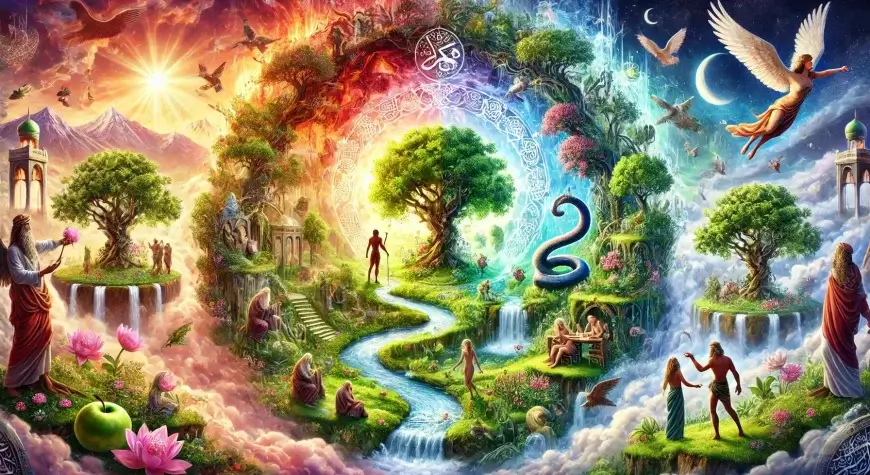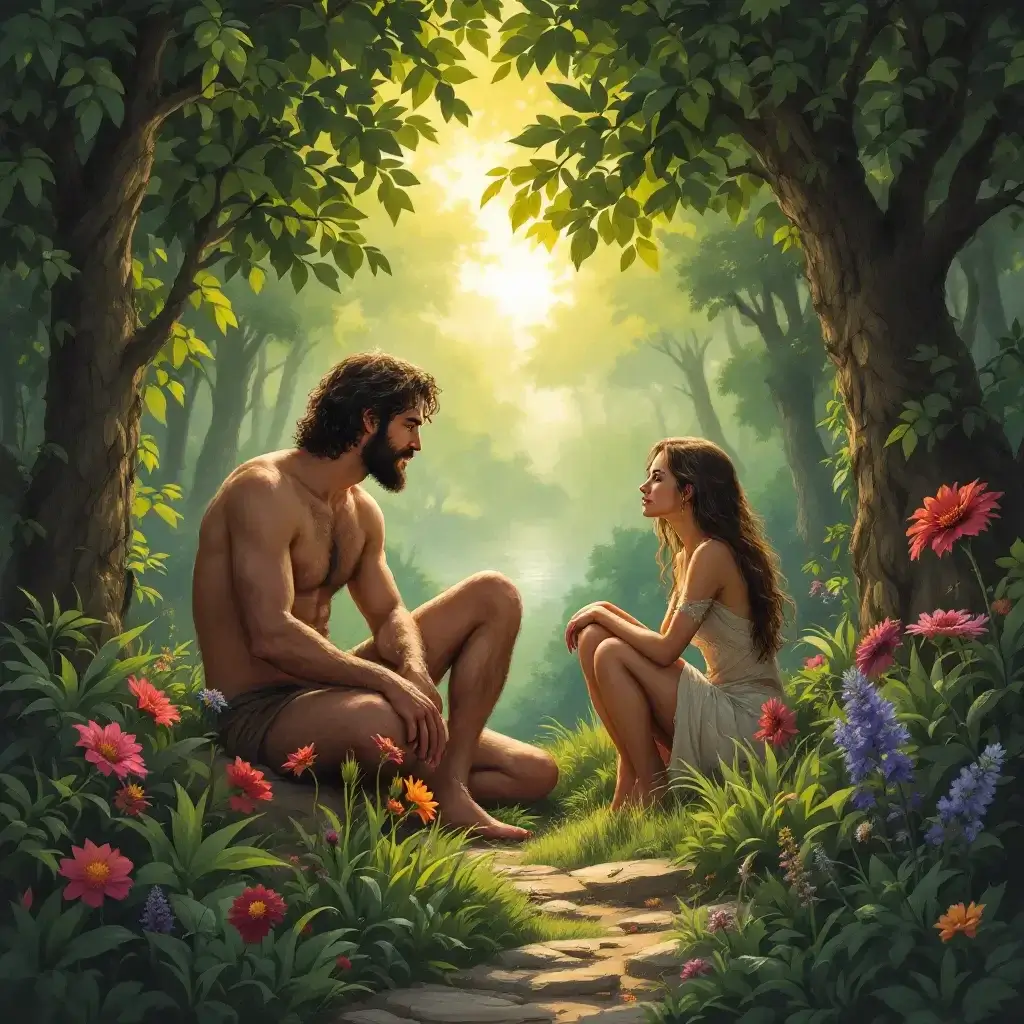Story of Adam A.S about His Forgiveness by God according to Bible and Quran.

The story of Adam represents a foundational narrative shared by Judaism, Christianity, and Islam. While the details vary across these Abrahamic faiths, Adam’s life and role in creation serve as a pivotal theme in understanding humanity’s origins and relationship with God. Below is an exploration of Adam’s story through the lenses of these three major religions.
The Story of Adam in the Bible (Judaism and Christianity)
Creation of Adam: According to the Book of Genesis, Adam is the first human created by God. After creating the heavens, the earth, and all living things, God decides on the sixth day to create a human being in His own image. Adam is formed from the dust of the ground, and God breathes life into him, making him a living soul (Genesis 2:7).
The Garden of Eden: Adam is placed in the Garden of Eden, a paradise filled with every kind of tree, river, and animal. His responsibility is to care for the garden and name the animals. Seeing that it is not good for Adam to be alone, God creates a companion for him, Eve, fashioned from one of Adam’s ribs (Genesis 2:18-25).

The Fall: God commands Adam and Eve not to eat from the Tree of the Knowledge of Good and Evil. However, a serpent, often interpreted as Satan, tempts Eve to eat the forbidden fruit, promising that she will become like God, knowing good and evil. Eve eats the fruit and shares it with Adam. Upon eating, they immediately realize their nakedness and cover themselves with fig leaves. When God confronts them, they hide in shame.
This act of disobedience, often called “The Fall,” brings sin and suffering into the world. As punishment, God expels them from the Garden of Eden. He declares that Eve will experience pain in childbirth and that Adam will toil to produce food from cursed ground (Genesis 3:16-19).
Life After the Fall: Adam and Eve’s children, Cain and Abel, become the first generation of humanity. Tragically, Cain kills Abel in the first act of human violence. Despite this, Adam and Eve’s descendants multiply and populate the earth, beginning humanity’s history of struggle with sin and redemption.
Legacy of Adam: In Christianity, Adam’s disobedience introduces “original sin,” a concept that highlights humanity’s need for salvation. Jesus Christ is seen as the “second Adam,” offering redemption through his life, death, and resurrection. This comparison makes Adam’s story central to Christian theology.
The Story of Adam in the Quran (Islam)
Creation of Adam: The Quran recounts Adam’s creation with remarkable parallels to the Bible. Allah creates Adam from clay and breathes His spirit into him, making him the first human being (Quran 38:71-72). Allah imparts special knowledge to Adam by teaching him the names of all things (Quran 2:31).
The Garden of Paradise: Adam and his wife, Hawwa (Eve), are placed in Jannah (Paradise), where they enjoy its blessings with one condition: they must not eat from a specific tree. Iblis (Satan), who refused to bow to Adam and was cast out of heaven, deceives them into eating from the forbidden tree. As a result, their nakedness becomes apparent, and they feel remorse (Quran 7:19-22).
Repentance and Forgiveness: Unlike the biblical account, the Quran emphasizes immediate repentance. Adam and Hawwa seek Allah’s forgiveness, and Allah, in His mercy, forgives them. However, they are sent to Earth to live, where Adam is appointed as the first prophet to guide humanity towards worshiping Allah and living righteously (Quran 2:37-38).
Legacy of Adam: In Islam, Adam’s story is not viewed as a tale of failure but as a lesson in repentance and God’s mercy. Islam rejects the notion of original sin, teaching instead that every human is born sinless and accountable only for their own actions. Adam’s children mark the beginning of humanity’s journey on Earth, navigating the challenges of sin and divine guidance.
Common Themes Across Traditions
- Creation: In all three faiths, Adam is acknowledged as the first human created by God, symbolizing the start of humanity.
- The Fall: Adam and Eve’s disobedience leads to their expulsion from Paradise, introducing the human struggle with sin.
- Repentance and Mercy: The story emphasizes God’s forgiveness and the possibility of redemption, underscoring the importance of repentance.
- Human Purpose: The narrative provides insight into humanity’s purpose, struggles, and dependence on divine guidance.
While differences exist in the particulars of Adam’s story as narrated in the Bible and the Quran, the overarching themes of creation, disobedience, repentance, and divine mercy resonate across Judaism, Christianity, and Islam. Adam’s story continues to serve as a profound reflection on the human condition, reminding believers of their connection to God and the eternal journey towards righteousness.

